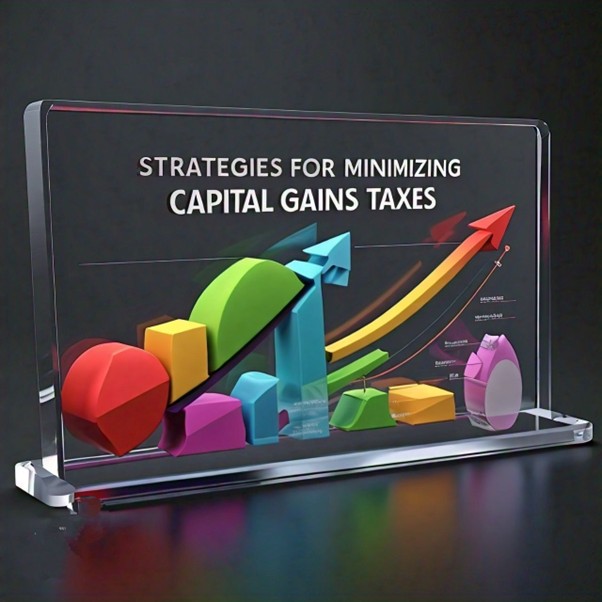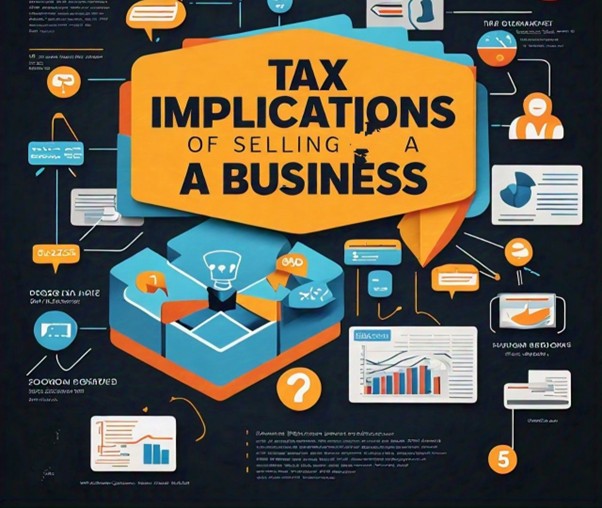PROVEN STRATEGIES FOR MINIMIZING CAPITAL GAINS TAXES: 7 STRATEGIES FOR MINIMIZING CAPITAL GAINS TAXES
As a Canada tax expert and financial advisor in Ontario, I’ve seen many individuals and businesses struggle with managing capital gains taxes. Capital gains taxes can be a significant burden, especially when selling investments, real estate, or businesses. However, with the right strategies, you can minimize your capital gains tax liability and keep more of your hard-earned money.
UNDERSTANDING CAPITAL GAINS TAXES
Before we dive into strategies for minimizing capital gains taxes, it’s essential to understand how capital gains taxes work.
Capital gains taxes are levied on the profit made from selling an investment or asset, such as:
– Stocks
– Bonds
– Real estate
– Businesses
– Artwork
– Collectibles
The capital gain is calculated by subtracting the original purchase price (or adjusted cost base) from the sale price. The resulting gain is then subject to tax.
For example, let’s say you purchased a stock for $10,000 and sold it for $20,000. The capital gain would be $10,000 ($20,000 – $10,000).
STRATEGIES FOR MINIMIZING CAPITAL GAINS TAXES

Now that we’ve covered the basics of capital gains taxes, let’s explore some proven strategies for minimizing your tax liability:
1. Hold Investments for the Long Term: Long-term capital gains are generally taxed at a lower rate than short-term capital gains. In Canada, long-term capital gains are taxed at a rate of 25% (50% of the gain is included in income), while short-term capital gains are taxed at your regular income tax rate.
2. Use Tax-Loss Harvesting: Tax-loss harvesting involves selling investments that have declined in value to offset gains from other investments. This can help reduce your overall tax liability.
3. Consider Charitable Donations: Donating securities or other investments to charity can help reduce your capital gains tax liability. You can claim a tax credit for the donation, and the charity won’t have to pay capital gains tax on the sale of the donated securities.
4. Use a Tax-Free Savings Account (TFSA): A TFSA allows you to earn investment income without paying tax on the gains. You can withdraw the funds tax-free, making it an excellent option for saving for retirement or other long-term goals.
5. Consider an Individual Pension Plan (IPP): An IPP is a registered retirement savings plan that allows you to contribute a portion of your income to a pension fund. The contributions are tax-deductible, and the investment earnings grow tax-free.
6. Use a Holding Company: If you own a business, consider using a holding company to hold your investments. This can help reduce your capital gains tax liability by allowing you to pay tax on the dividends received from the holding company rather than the capital gain.
7. Consider a Pre-Sale Dividend: If you’re selling a business, consider paying a pre-sale dividend to reduce the capital gain. This can help minimize your tax liability and provide liquidity for the business.
TAX PLANNING FOR INVESTMENTS AND REAL ESTATE

When it comes to investments and real estate, tax planning is crucial to minimizing your capital gains tax liability. Here are some strategies to consider:
1. Invest in a Tax-Efficient Manner: Consider investing in a tax-efficient manner, such as through a TFSA or a registered retirement savings plan (RRSP).
2. Use a Real Estate Investment Trust (REIT): A REIT allows you to invest in real estate without directly owning physical properties. This can help reduce your capital gains tax liability by allowing you to pay tax on the dividends received from the REIT rather than the capital gain.
3. Consider a Joint Venture: If you’re investing in real estate with a partner, consider using a joint venture. This can help reduce your capital gains tax liability by allowing you to split the gain with your partner.
4. Dividend Investing: Investing in dividend-paying stocks can provide a regular income stream and potentially lower tax liabilities.
5. Tax-Loss Harvesting: Selling investments that have declined in value can help offset gains from other investments and reduce tax liabilities.
6. Primary Residence Exemption: The sale of a primary residence is exempt from capital gains tax.
7. Holding Real Estate in a Corporation: Holding real estate in a corporation can provide tax benefits, such as lower tax rates and the ability to claim depreciation.
Additional Tax Planning Considerations
1. Will and Estate Planning: Having a valid will and estate plan can help minimize probate fees and ensure that assets are distributed according to your wishes.
2. Charitable Donations: Donating to charity can provide tax benefits and support your favorite causes.
3. Tax Credits: Claiming tax credits, such as the Ontario Trillium Benefit, can help reduce tax liabilities.
TAX IMPLICATIONS OF SELLING A BUSINESS

Selling a business can be a complex and tax-intensive process. Here are some tax implications to consider:
1. Capital Gains Tax: When you sell a business, you’ll be subject to capital gains tax on the gain. This can be a significant tax liability, especially if you’ve owned the business for a long time.
2. Dividend Tax: If you’re selling a business that’s incorporated, you may be subject to dividend tax on the proceeds of the sale. This can add to your overall tax liability.
3. GST/HST: If your business is subject to GST/HST, you may be required to pay GST.
4. Provincial Taxes: As an Ontario resident, you’ll be subject to provincial taxes on the sale of your business.
5. Lifetime Capital Gains Exemption: If you’re selling a qualifying small business corporation or a farming/fishing business, you may be eligible for the lifetime capital gains exemption (LCGE). The LCGE can provide tax-free gains of up to $883,384 (2022).
6. Tax-Free Rollover: If you’re selling a business and reinvesting the proceeds in a new business, you may be eligible for a tax-free rollover. This can help defer tax liabilities until a later date.
7. Share Sale vs. Asset Sale: When selling a business, you can choose to sell the shares of the corporation (share sale) or the assets of the business (asset sale). A share sale can provide more tax benefits, but it may also have more complex tax implications.
8. Pre-Sale Planning: Consider pre-sale planning strategies, such as paying dividends or bonuses to shareholders or employees, to reduce the tax liability on the sale of the business.
THINGS TO AVOID

When implementing proven strategies for minimizing capital gains taxes in Canada, Ontario, it’s essential to avoid common mistakes that can lead to unnecessary tax liabilities, penalties, and fines. Here are some things to avoid:
Tax Planning Mistakes
1. Failing to report income or capital gains: Failing to report income or capital gains can result in penalties and fines.
2. Not claiming tax credits and deductions: Failing to claim tax credits and deductions can result in missed tax savings opportunities.
3. Not seeking professional advice: Tax planning for capital gains tax minimization can be complex. Not seeking professional advice can result in costly tax mistakes.
4. Not considering provincial taxes: In addition to federal taxes, Ontario residents must also consider provincial taxes when planning for capital gains tax minimization.
Investment and Real Estate Mistakes
5. Not using tax-efficient investment strategies: Failing to use tax-efficient investment strategies, such as tax-loss harvesting, can result in unnecessary tax liabilities.
6. Not considering the tax implications of real estate investments: Real estate investments can have significant tax implications, including capital gains tax and GST/HST.
7. Not using a holding company for real estate investments: Holding real estate investments in a corporation can provide tax benefits, such as lower tax rates and the ability to claim depreciation.
Tax Shelter and Aggressive Tax Planning Mistakes
8. Participating in tax shelters or aggressive tax planning schemes: Participating in tax shelters or aggressive tax planning schemes can result in penalties, fines, and even prosecution.
9. Not disclosing foreign assets or income: Failing to disclose foreign assets or income can result in penalties and fines.
Record-Keeping and Documentation Mistakes
10. Not maintaining accurate and detailed records: Failing to maintain accurate and detailed records can make it difficult to support tax claims and deductions.
11. Not retaining documentation for the required period: Failing to retain documentation for the required period can result in penalties and fines.
Other Mistakes
12. Not considering the impact of tax changes on capital gains tax planning: Tax laws and regulations are subject to change. Failing to consider the impact of tax changes on capital gains tax planning can result in unnecessary tax liabilities.
13. Not reviewing and updating tax plans regularly: Tax plans should be reviewed and updated regularly to ensure they remain effective and efficient.
By avoiding these common mistakes, you can ensure that your proven strategies for minimizing capital gains taxes in Canada, Ontario, are effective and efficient. Consult with a tax professional or financial advisor to develop a personalized tax planning strategy.
FREQUENTLY ASKED QUESTIONS
General Questions
- What is capital gains tax?
Capital gains tax is a type of tax levied on the profit made from selling an investment or asset, such as stocks, real estate, or businesses.
- How is capital gains tax calculated?
Capital gains tax is calculated by subtracting the original purchase price (or adjusted cost base) from the sale price of the investment or asset.
- What is the capital gains tax rate in Canada?
In Canada, the capital gains tax rate is 50% of the capital gain, which is included in income and taxed at the individual’s marginal tax rate.
Tax Planning Strategies
- What is tax-loss harvesting, and how can it help minimize capital gains tax?
Tax-loss harvesting involves selling investments that have declined in value to offset gains from other investments, reducing overall tax liability.
- How can I use a Tax-Free Savings Account (TFSA) to minimize capital gains tax?
A TFSA allows investment earnings to grow tax-free, and withdrawals are tax-free, making it an excellent option for saving for retirement or other long-term goals.
- Can I use a Registered Retirement Savings Plan (RRSP) to minimize capital gains tax?
Contributions to an RRSP are tax-deductible, and investment earnings grow tax-free until withdrawal, making it a popular option for retirement savings.
Investment and Real Estate
- How can I minimize capital gains tax when selling real estate in Canada?
Consider using the primary residence exemption, holding real estate in a corporation, or using a joint ownership structure to minimize capital gains tax.
- What are the tax implications of selling a business in Canada?
Selling a business can have significant tax implications, including capital gains tax, dividend tax, and GST/HST.
Tax Credits and Deductions
- Can I claim a tax credit for charitable donations?
Yes, charitable donations can provide tax credits, which can help reduce tax liability.
- What tax deductions can I claim as a business owner in Canada?
Business owners can claim various tax deductions, including business use-of-home expenses, travel expenses, and capital cost allowance.
Consultation and Planning
- Why is it essential to consult with a tax professional or financial advisor?
A tax professional or financial advisor can help develop a personalized tax planning strategy, ensuring you minimize capital gains tax and maximize after-tax returns.
- How can I get started with tax planning for capital gains tax minimization?
Book a consultation with a tax professional or financial advisor to discuss your specific situation and develop a tailored tax planning strategy.
CALL TO ACTION
Don’t let Capital Gains Taxes erode your hard-earned wealth! Take control of your financial future by implementing proven strategies for minimizing capital gains taxes in Canada, Ontario.
Book a Consultation with us at sjohn@glhaccounting.ca and let us help you with:
1. Assess your current financial situation and tax obligations
2. Identify tax-saving opportunities and develop a personalized tax plan
3. Implement proven strategies for minimizing capital gains taxes
Get Started Today!
Don’t wait until it’s too late! Take the first step towards minimizing your capital gains tax liability. Book a consultation with us today!
ABOUT AUTHOR
Shanel John is a dedicated Certified Public Accountant (CPA) at G.L.H. Accounting, specializing in Income Tax with 10 years of experience. Based in Brampton, Ontario, Canada, Shanel offers expertise in tax preparation, financial accounting, and advisory services. A certified QBO Pro Advisor, Shanel’s decade-long experience and knowledge make her a trusted figure in the accounting field.
ADDITIONAL RESOURCES
TAX-FREE SAVINGS ACCOUNT: https://www.canada.ca/en/revenue-agency/services/forms-publications/publications/rc4466/tax-free-savings-account-tfsa-guide-individuals.html
REGISTERED PENSION PLANS: https://www.canada.ca/en/revenue-agency/services/forms-publications/publications/t4099/registered-pension-plan-guide.html
REAL ESTATE INVESTMENT TRUST (REIT): https://www.canada.ca/en/revenue-agency/services/tax/individuals/topics/about-your-tax-return/tax-return/completing-a-tax-return/personal-income/line-12700-capital-gains/completing-schedule-3/real-estate-depreciable-property-other-properties/real-estate.html
LIFETIME CAPITAL GAINS EXEMPTION: https://www.canada.ca/en/revenue-agency/programs/about-canada-revenue-agency-cra/federal-government-budgets/budget-2013/budget-2013-lifetime-capital-gains-exemption.html

